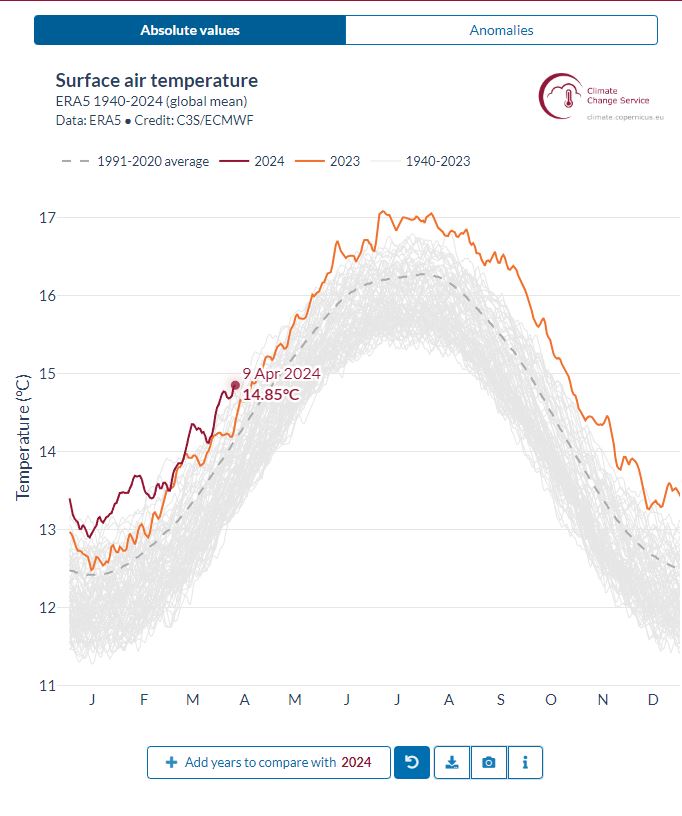March 2024 has solidified its place in history as the tenth consecutive month to claim the title of the hottest on record, according to the latest data from the Copernicus Climate Change Service (C3S). This remarkable streak, spanning from April 2023 to March 2024, underscores a troubling trend of escalating temperatures worldwide.
The C3S's Climate Pulse application reveals that the global surface air temperature for March soared to 14.14°C, surpassing the 1991-2020 average by 0.73°C. Notably, this reading edged past the previous high recorded in March 2016 by 0.10°C. Even more concerning is the comparison to the pre-industrial period (1850-1900), with March 2024 registering a staggering 1.68°C warmer than the average.
Samantha Burgess, Deputy Director of C3S, emphasized the gravity of these findings, stating, "March 2024 continues the sequence of climate records toppling for both air temperature and ocean surface temperatures." She underscored the imperative for urgent action, highlighting the need for swift reductions in greenhouse gas emissions to mitigate further warming.
In addition to atmospheric temperatures, the global oceans are also experiencing unprecedented warmth, with surface temperatures reaching record highs for 12 consecutive months. The global average sea surface temperature for March peaked at 21.07°C, slightly eclipsing the previous month's record.
Furthermore, the C3S report details regional climate anomalies, with western Europe experiencing above-average precipitation and humidity levels, while parts of Australia, North America, Central Asia, and other regions witnessed exceptionally wet conditions. Conversely, areas like the Iberian Peninsula and parts of Scandinavia grappled with storms and heavy rainfall.
The Arctic and Antarctic regions also faced notable developments, with Arctic sea ice extent remaining slightly below average but showing improvement compared to previous years. Conversely, Antarctic sea ice extent marked its sixth-lowest extent for March within the 46-year satellite dataset.
March 2024's climate data underscores the urgency of addressing climate change, with its far-reaching impacts on ecosystems, weather patterns, and global temperatures. As the world grapples with the consequences of rising temperatures, concerted efforts to curb emissions and foster sustainable practices are more critical than ever.
About Copernicus Climate Change Services (C3S)
The Copernicus Climate Change Service (C3S) supports society by providing authoritative information about the past, present and future climate in Europe and the rest of the World.
C3S is implemented by the European Centre for Medium-Range Weather Forecasts (ECMWF) on behalf of the European Commission. ECMWF is an independent intergovernmental organisation serving its Member and Co-operating States and the broader community. The majority of C3S service elements are implemented by about 260 companies and organisations across Europe, which are selected based on competitive Invitations To Tender (ITTs).
Source: Copernicus
Related news:
2023 warmest October ever recorded!
Why Arctic wildfires are releasing more carbon than ever
Four key climate change indicators break records in 2021
The tags below provide an opportunity to view previously posted related news within the selected category


